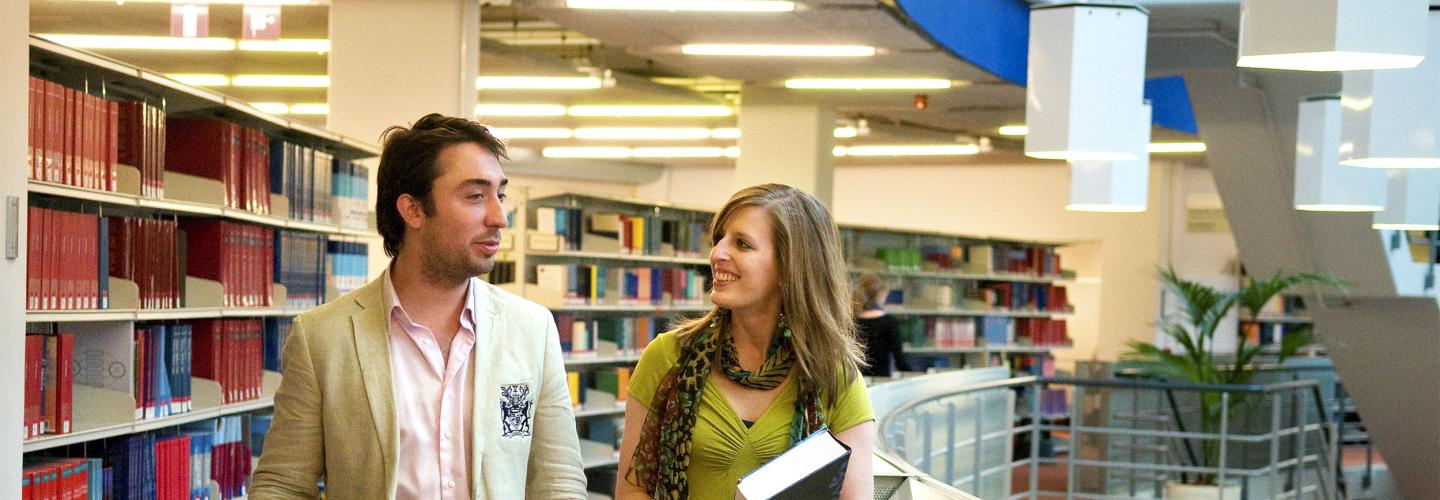Why this programme
In the master’s specialisation Legal Psychology, you will learn how to apply principles from cognitive and applied social psychology to issues in the legal system. Questions that are typical for Legal Psychology are: “How reliable are eyewitnesses?’ and ‘How to conduct a proper investigative interview?”. Psychologists with a background in Legal Psychology ask questions that have direct relevance to the legal arena and conduct research to address these questions.
Legal psychology is a branch of applied psychology concerned with the study of human functioning in relation to the legal system as a whole. More specifically, legal psychology focuses on functions such as perception, memory and decision making. This is important because human law is specifically designed to be of influence on human behaviour. Therefore, the task of a legal psychologist is twofold: (1) to study how law affects human behaviour and (2) to study human behaviour under the influence of law.
Programme outline
The specialisation Legal Psychology is underpinned by two important elements: research and testing. The specialisation consists of five courses.
- ‘Psychology of eyewitness testimony’ provides you with insight into the psychology of eyewitnesses.
- ‘Interrogation and interviewing’ teaches you about the different strategies that can be used when interrogating or interviewing a suspect.
- In ‘Thinking like an expert’ the role that experts play in judicial decision-making and the validity of expert opinions are important subjects.
- ‘Forensic neuropsychology’ familiarises you with neuropsychological disorders and assessment.
- ‘Public Policy in Legal Psychology’ focusses on the basics of writing public policy in legal psychology.
- In the practical course ‘Legal Psychology in Action’, students are taught assessment methods used in legal psychology and learn about expert witnessing.
The literature for these courses consists of individual research papers taken from experimental, applied, and forensic psychiatric journals. During the second semester, you complete a research internship and write your thesis.
English, but with Dutch examples
The theoretical part of the specialisation in Legal Psychology is taught in English. However, you should be aware that many examples and illustrations are drawn from the Dutch judicial system, such as the TBS system (the part of the penitentiary system responsible for mandatory psychiatric treatment on behalf of the state). You’ll also discuss important cases that have made an impact on the psychology and law field in the Netherlands. One important difference in the Netherlands is that legal decisions are made by judges rather than juries. In the practical part of this specialisation, you’ll also visit Dutch court hearings and forensic settings.
Participate in ongoing research
The themes of the Legal Psychology specialisation are closely linked to research of our staff. They include:
- lie detection
- eyewitness testimony
- interrogation techniques
- vulnerable suspects
- false confessions
forensic psychopathology
- distorted symptom presentation
The close link between education and research offers you many opportunities to participate in ongoing research – both at Maastricht University or elsewhere, including abroad.
Internship & thesis
Research internship
The research internship gives you the opportunity to participate in the ongoing research of the faculty’s academic staff or to work with external academic or clinical institutions. You will design and pursue your own research question, which will be the foundation of your master's thesis.
You can choose the subject of your research internship from a wide variety of topics that fit within your chosen specialisation. The internship can be done in the Netherlands or abroad.
Thesis topics
For your thesis, you could do something like:
child forensic interviewing
- face recognition
- experimental research on eyewitness memory
Teaching staff
- Dr. Kim van Oorsouw (Programme Coordinator)
- Prof. Dr. Corine de Ruiter
- Dr. Marko Jelicic
- Dr. Robyn Mooney
- Dr. Sanne Houben
- Prof. dr. Harald Merckelbach
- Prof. dr. Henry Otgaar
- Dr. Ewout Meijer
- Dr. Anna Sagana
- Dr. Maartje Schreuder
- Dr. Linsey Raymaekers
Dr. Melanie Sauerland
- Dr. Lotte Slootmaekers
- Dr. Glynis Bogaard
Problem-Based Learning
As with many Maastricht University programmes, the Developmental Psychology programme is taught using Problem-Based Learning (PBL). In small tutorial groups of 10 to 12 students, you'll seek solutions to ‘problems’ taken from real-world situations. Instructors act as facilitators, giving help as it’s needed. This allows you to build independence and develop problem-solving skills that you’ll need in the field. This active, dynamic and collaborative learning method has one of the highest knowledge retention rates of any instructional method.
International classroom
From day one of the programme, you’ll be challenged with differing viewpoints and experiences as you interact with staff and students from all over the world. Your worldview will be enhanced by this interaction, bringing you closer to the programme’s goal of teaching students not only facts and concepts but also international accessibility and understanding. Roughly 80% of the students in this master’s programme come from outside the Netherlands. Such diversity creates an international atmosphere that is strengthened by the international orientation of the programme.
Forensic master's programmes
Even though clinical forensic psychology is one of the topics of this master’s, it’s not the main focus. In this specialisation, you’ll primarily study the cognitive aspects of Legal Psychology. If forensics is your focus, Maastricht University offers two other master's programmes in forensic science that you may want to consider:
- Forensics, Criminology and Law (LLM) focuses on the relationship between criminal justice and the various forensic sciences
- Forensic Psychology (MSc) focuses on clinical psychology from a forensic perspective
